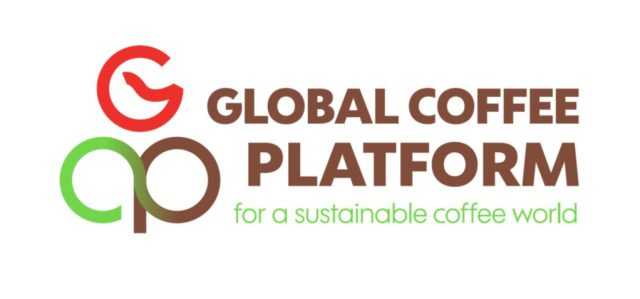BONN, Germany – Sustainable coffee purchases have increased significantly in 2022, driven by compliance requirements, corporate leadership and consumer expectations, according to a new report from the Global Coffee Platform (GCP) featuring insights from its transparency initiative, Collective Reporting on Sustainable Coffee Purchases, through which eight leading GCP Member companies have shared their sustainable purchasing progress.
The newly published GCP Snapshot 2022 registered a share of over 70% of sustainable coffee purchases, more than 26 million bags, out of the total reported green coffee volume of over 36 million bags.
The GCP Snapshot 2022, published by the Global Coffee Platform, provides transparent and detailed insights into the development of sustainable coffee purchases of JDE Peet’s, Julius Meinl, Keurig Dr Pepper, Melitta Group, Nestlé, SUPRACAFÉ, Tesco and Westrock Coffee Company, all of which have committed to using GCP’s aligned, comparable metrics as a common language on coffee sustainability in this collective reporting effort.
The report shows the highest growth in the overall sustainable coffee purchase volumes reported by coffee roasters and retailers in GCP’s Collective Reporting since 2018: for the first time, the share of reported total sustainable coffee purchases, over 26 million bags, climbed to over 70% of the total reported green coffee volume.
The report presents the breakdown of purchases per participating company, as well as an additional feature on several companies’ sustainable coffee purchases according to sourcing regions. Moreover, it offers insights into origin diversity with sustainable coffee purchases received from 34 coffee producing countries – a steady increase in numbers of coffee producing countries reported since the first edition in 2018.
Importantly, the report showcases remarkable growth in the number of GCP-recognized sustainability schemes, which have been assessed against the principles and practices of the Baseline Coffee Code, now revised as Coffee Sustainability Reference Code, and the GCP Equivalence Mechanism. Depending on their assurance model they are classified as 2nd party or 3rd party assurance.
Despite the change in composition of participating roasters and retailers, and the continuous increase in the number of GCP-recognized sustainability schemes, this year’s significant growth in the share of the overall sustainable coffee purchase volumes showcases the increasing market uptake of sustainable coffee under different sustainability schemes.
“Over the past five years, extraordinary commitment and disclosure from prominent coffee companies has provided transparent information through the annual GCP Snapshot, showing the sector how increases of sustainable coffee purchases are expanding the global marketplace for sustainable coffees,” said Annette Pensel, GCP Executive Director.
“In view of shared sustainability challenges yet to be overcome, including regulatory requirements such as the European Union Deforestation Regulation (EUDR), GCP Snapshot partners are invited to expand their collaboration through GCP and explore innovative solutions at a pre-competitive level to share the responsibility of sustainability in impactful, efficient ways at scale,” said Pensel.
But while the new report discloses the hugely important work underway, even bolder individual and collaborative efforts are needed, said Pensel.
“To achieve transformational change that results in economic viability of sustainable coffee farming and a living income for producers and workers while preserving nature and addressing climate change effectively, we need more collective action and collective investments today.”
“GCP applauds the progress made and expects this sense of urgency will inspire more companies to take bold actions. We look forward to welcoming more roasters and retailers to join the GCP Snapshot Report 2023.”
Download the GCP Snapshot 2022
Click to register and join GCP and participating GCP Members on Tuesday, 12 September, 15:00 CEST / 9:00 EDT / 10:00 BRT. Evento com tradução simultânea para português.














